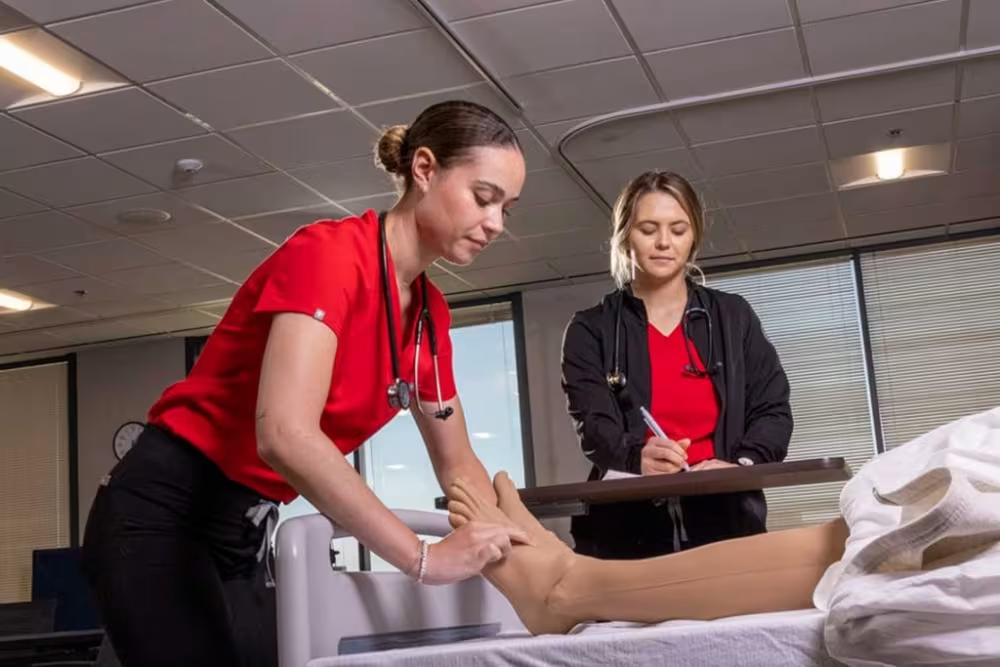Nursing Simulation Labs and Skills Labs
It takes more than theoretical knowledge to be an outstanding nurse. You also need the skills, confidence and clinical reasoning to think on your feet in potentially stressful situations. That’s why skills labs and nursing simulation labs are essential to the University of the Incarnate Word (UIW) Accelerated Bachelor of Science in Nursing (ABSN) track.
Nursing labs are designed as a safe environment where you can learn from mistakes. During these labs, you will apply the nursing concepts gained through your online coursework to real-world patient care scenarios.

You’ll have the opportunity to practice clinical skills using the same advanced medical technology used in hospitals and healthcare facilities while working with high-tech medical manikins.
Nursing labs will challenge you to think critically and develop clinical judgment in a safe, risk-free environment.

Nursing Skills Labs
Before you can practice as a nurse, you must first master the basics. Designed to resemble a hospital environment, nursing skills labs allow you to practice applying fundamental nursing skills, such as:
- Checking vital signs (blood pressure, pulse, etc.)
- Conducting a head-to-toe nursing assessment
- Inserting catheters and IVs
- Nasogastric intubation
- Treating wounds
In addition to attending Accelerated BSN skills labs, we offer open nursing lab hours for students to hone their skills further.
Nursing Simulation Labs
Building on the skills lab concept, nursing simulation labs are as close as possible to real-world practice without interacting with human patients. Here, you’ll participate in various clinical scenarios designed to challenge and grow your ability to solve problems, think critically and collaborate with others.
At the heart of these mock scenarios are state-of-the-art medical manikins. Controlled by your simulation instructors, these manikins don’t just look human; they act it, too, so you can actively engage in patient assessment and care. Manikins can simulate:
- Allergic reactions
- Blood loss
- Cardiac arrest
- Responses to medical procedures
After each simulation lab, you and your lab group will review recordings of the scenario. This allows you to learn from your and your peers’ experiences, while also helping your instructor identify areas to focus on for improvement.


Learn in a Safe Environment
Featuring high-tech human patient simulators and task trainers as a substitute for real-life patients, skills and simulation labs provide a safe environment to practice and refine your clinical skills, such as inserting an IV or responding to a life-threatening medical emergency.
During these nursing labs at our state-of-the-art ABSN learning center in San Antonio, you’ll receive the kind of individualized attention you can only get with small class sizes.

For More Information
Contact us to learn more about how our ABSN skills and nursing simulation labs prepare you for a future in healthcare.
